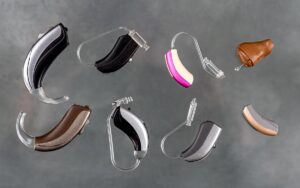Your hearing is your most precious instrument if you are a professional musician. So protecting their ears should be a high priority for every musician. But generally speaking, that’s not the way it is. In fact, there’s a pervasive culture of fatalism when it comes to hearing in the music business. They believe hearing loss is just “part of the job”.
That attitude, however, is beginning to be challenged by certain new legal legislations and concerted public safety efforts. It shouldn’t ever be considered just “part of the job” to cause hearing loss. When there are proven ways to protect the ears, that’s particularly true.
Protecting Your Hearing in a Loud Environment
Professional musicians, of course, are not the only individuals to work in a potentially noisy surrounding. Nor are they the only group of workers who have developed a fatalistic approach to the harm caused by loud noise. But practical levels of hearing protection have been more rapidly embraced by other professions such as manufacturing and construction.
There are probably a few reasons for this:
- In many artistic industries, there’s a sense that you should feel fortunate just to be given a chance, that no matter how harshly you’re treated, there’s someone who would be excited to take your place. So many musicians may not want to make waves or whine about inadequate hearing protection.
- Musicians need to be able to hear rather well while performing, even when they’re performing the same music regularly. If it seems like it will hamper the ability to hear, there can be some opposition to wearing hearing protection. It should also be mentioned, this resistance is commonly due to false information.
- A manufacturing and construction environment is replete with risk (hard hat required, as the saying goes). So construction laborers, site foremen, and managers are likely more accustomed to donning protective equipment.
This “part of the job” culture impacts more than just the musicians, unfortunately. There’s an implied expectation that other people who are working in the music industry such as roadies and bartenders go along with this harmful mindset.
Norms Are Changing
There are two big reasons that this is transforming, thankfully. The first is a landmark case against the Royal Opera House in London. While in a certain concert, a viola player was placed immediately in front of the brass section and exposed to over 130dB of noise. That’s roughly equivalent to a full-blown jet engine!
In the majority of cases, if you were going to be exposed to that amount of noise, you would be given hearing protection. But the viola player experienced long periods of tinnitus and general hearing loss because she wasn’t provided hearing protection.
When the courts ruled against the Royal Opera House and handed down a ruling in favor of the viola player, it was a very clear signal that the music industry would need to take hearing protection regulations seriously, and that the industry should not think of itself as an exceptional circumstance and instead commit to proper hearing protection for every employee and contractor concerned.
A Musicians Fate Shouldn’t be Hearing Loss
The number of those in the music industry who are afflicted by tinnitus is staggeringly high. And that’s the reason why there’s a campaign to raise awareness worldwide.
Everyone from rock star and their roadies to wedding Dj’s to classical musicians are in danger of experiencing “acoustic shock,” a response to very loud noises which includes the onset of tinnitus, hyperacusis, and hearing loss. There is an increasing chance of having irreparable damage the more acoustic shock a person sustains.
You can be protected without diminishing musical abilities by using earplugs that are specifically manufactured for musicians or other cutting-edge hearing protection devices. Your ears will be protected without limiting the quality of sound.
Transforming The Music Attitude
You can take advantage of the correct hearing protection right now. Changing the mindset in the music industry, at this point, is the key to protecting the hearing of musicians. This task, though it’s a difficult one, is one that’s already showing results (the judgment against the Royal Opera House has certainly provided some urgency for the industry to pay attention to this problem).
In the industry, tinnitus is extremely common. But this doesn’t have to be how it is. It doesn’t make a difference what your job is, loss of hearing shouldn’t ever be “just part of the job”.
Are you a musician? If you don’t want your performance to be impacted, ask us how to safeguard your ears.





